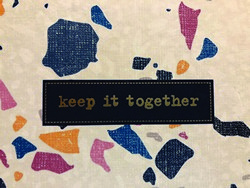We are referred to as the Millennials, and even Generation Y. Now people are beginning to refer to us as something not so positive: The Blackout Generation. Blackout Generation is classified as college aged students who try to get drunk as fast as possible. This longing to be drunk quickly resulting in quickly consuming alcohol, is also known as binge drinking. Being a college student, this is seen as being normal. In actuality, we know it is not safe and poses harm to our bodies.
Binge drinking is not something that only college aged students take part in. However, the regular binge drinking done by young people our age is the reason we are known as the Blackout Generation.
Substance Awareness Coordinator for Health Services, Suanne Schaad, described her thoughts on binge drinking. “We know that all negative consequences from binge drinking are results of binge drinking. The definition of binge drinking is when drink more than five drinks and women drink more than four drinks. These consequences include sexual assaults, accidents, overdoses, and low GPAs. The blackout generation simply describes the generation of wanting to get drunk fast with this sole intent in mind. This problem is not just at Monmouth University, but with all colleges and universities.” Schaad said.
The term “blacking out” has becoming a common term and definition among college aged students. This term, and activity, is present on all college campuses around the country. Like Schaad stated, this activity is not just present at Monmouth University. The National Institute of Alcohol Abuse and Alchoholism identified problems that go along with college drinking. The institute’s website said, “College drinking is extremely widespread. About four out of five college students drink. About half of college students who drink, also consume alcohol through binge drinking. Each year, drinking affects college students, as well as college communities and families.”
Chelsea McFeeley, a junior communication student, had a different opinion regarding students our age being referred to as the blackout generation. McFeeley said, “I think that it’s depressing that our generation is has such a bad reputation but I don’t necessarily think it’s true. My dad always tells me stories about him and his friends getting drunk and doing stupid things when they were younger so I feel like it’s not just our generation. Drinking has become a social aspect of our culture and some people choose to embrace it more than others, I suppose.”
The facts that both Schaad and The National Institute of Alcohol Abuse and Alchoholism (NIAAA) completely identify why college-aged students are becoming known as the Blackout Generation.
The NIAAA also noted, “1, 825 college students between the ages of 18 and 24 die each year from alcohol-related unintentional drinking injuries. More than 690,000 students 18 and 24 are assaulted by another student who has been drinking.” Just last week, a West Virginia University freshman died from alcohol. According to MTV, the WVU student tweeted before the incident, “It’s about to be a very eventful night to say the least.”
Unfortunately, when it comes to tragedies like this one, there is a fine line between if these black outs are intentional or if this behavior is accidental.
“As a non drinker, I do not know what it is like to black out. However, I do know people who do. I think it could be the way kids were raised or even the mindset these days. The party culture has turned into something where it is seen as normal to black out,” Rebecca Zidik, a senior communication major said. She continued, “Blacking out is in the media, songs, and peer pressure. I know some people who don’t want to drink without blacking out, they cannot casually drink.”
If you think your behavior sounds like it falls under The Blackout Generation category, there is help available.
“We continue to offer free and confidential counseling services at the Office of Substance Awareness and provide programs and events on campus to increase awareness. It is difficult to change the culture as it is seen as some as a rite of passage. The fact is that not all college students binge drink, and that is the perception,” Schaad said.
Whether you deem this generation as the Blackout Generation or not, understanding the negative consequences of binge drinking can be helpful to either yourself or someone you know.



